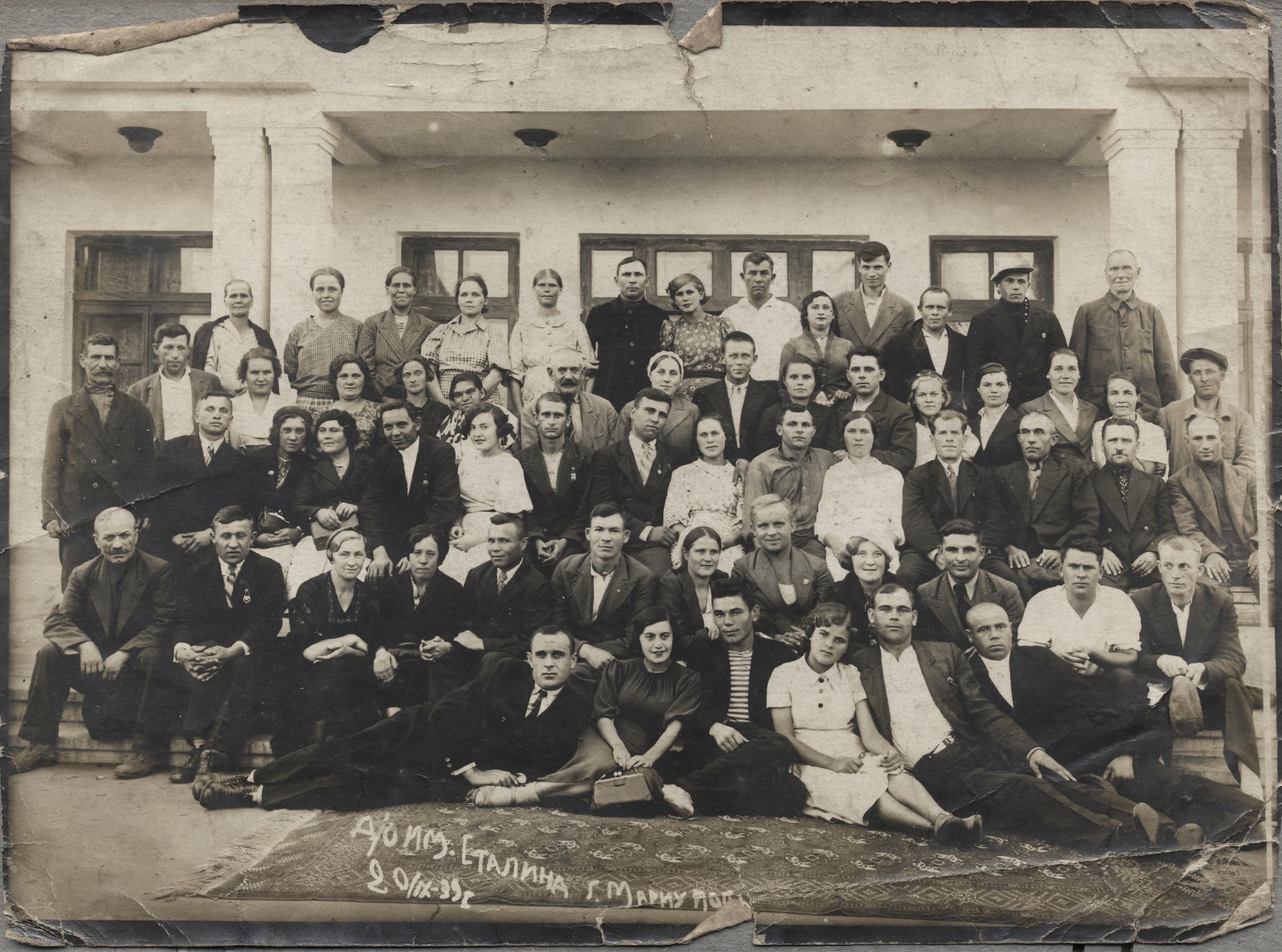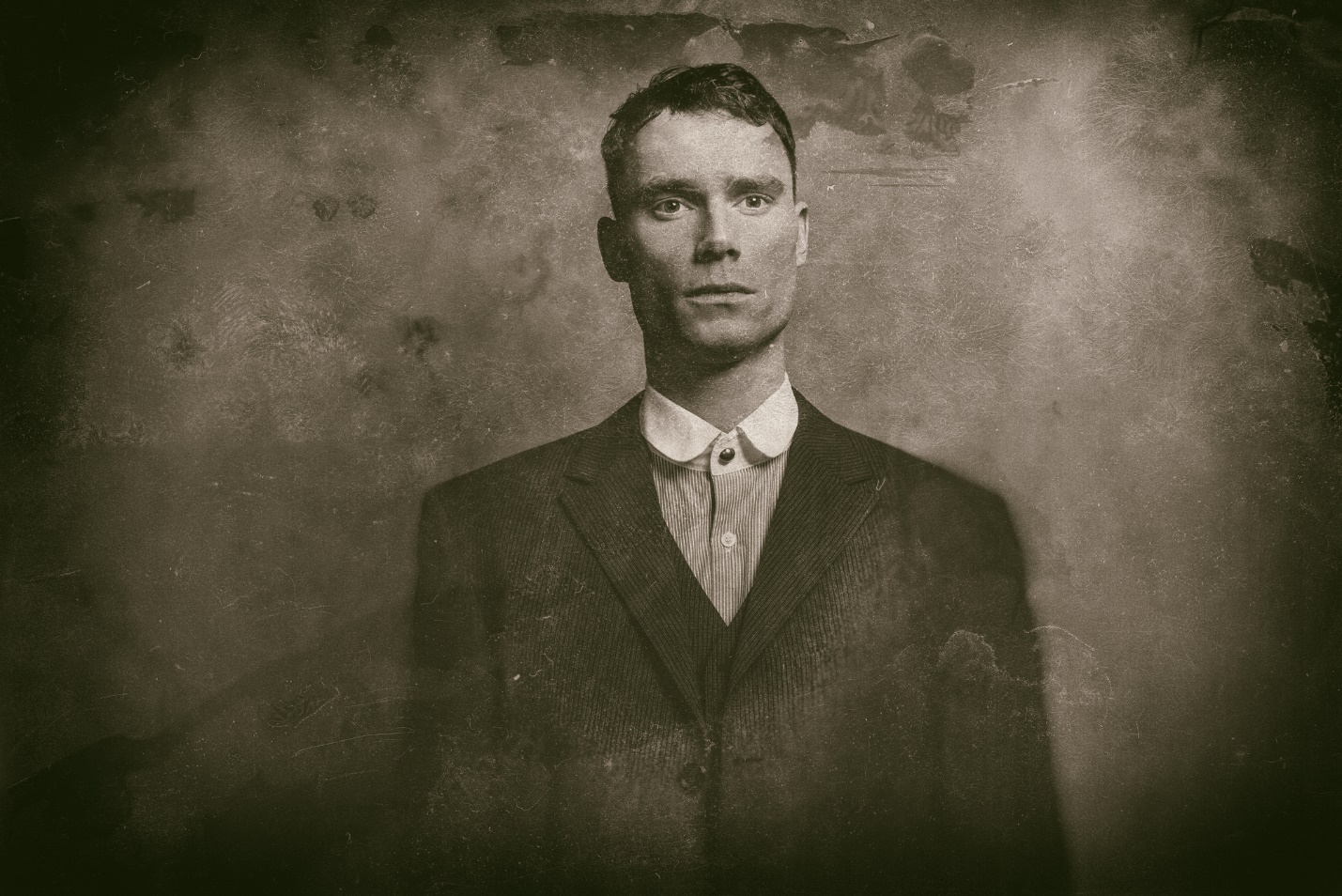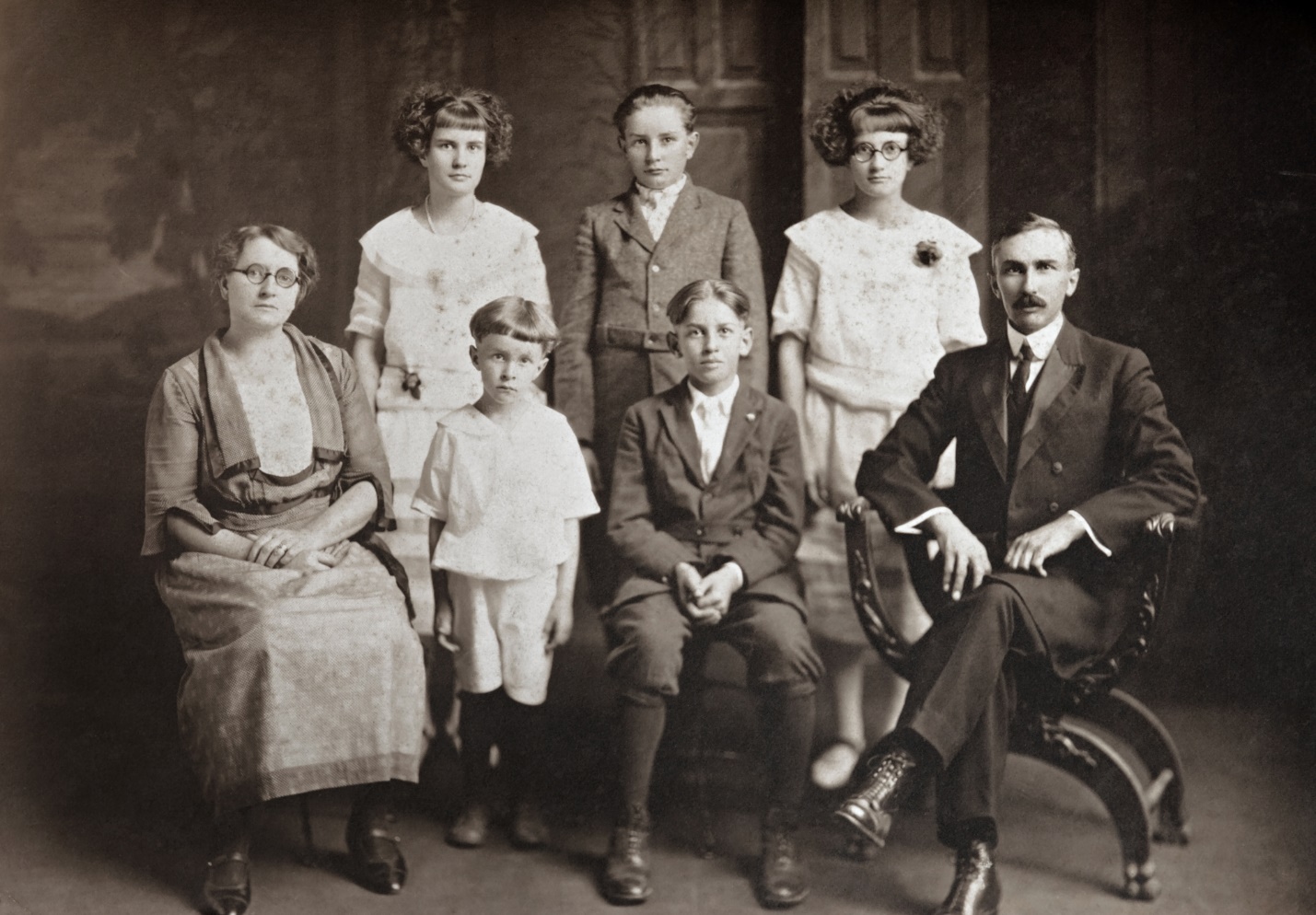BP 94

No, I’m not talking about seeing literal dead people like the little boy in the movie, The Sixth Sense. The people I’m speaking about are not even all dead. So, who am I actually referring to when I speak of seeing dead people? A better way to say it would be seeing the unseen people who are in the room with you even as you read this post. Your parents are some of these people.
Have you ever considered the ways your parents influenced you when you were growing up and that these influences often remain with you into your adult years?
Your parents left their mark on you through how they spent their time, the rules they enforced in the home, their relationship with God, the way they showed love, their coping skills, how much time they spent with you, if they were moody or steady, hyper-responsible or undermotivated, authoritarian or permissive, if they under stimulated or overstimulated their children, if they divorced, had a chronic illness, died young, were physically fit or sedentary, kind or evil, bitter or forgiving, critical or encouraging, or if they addressed the wounds from their childhood or chose to suppress those memories and emotions and instead pass (transfer) them forward to others including their own children.
There are so many ways parents touch the lives of their children, sometimes not only by what they do and say but also by what they don’t do and don’t say. Often, how children view themselves is largely informed by the mirroring the parents provide for them. Children develop enduring opinions of themselves through their parents’ facial expressions, tone of voice, words, attachment ability, consistency of presence–even by being too present or comforting for their children thus interfering with their ability to separate and face the problems of life with resiliency.
We have talked in previous blogposts about how children have an innate capacity to internalize their parents, to take them inside and remember them—even their attitude toward each of their children since parents often relate to different children differently. Parents imprint themselves on their children, sometimes for good, sometimes for bad. This internalization of parents means that children take their parents with them wherever they go the rest of their lives—to some degree or another. Even after their parents die, children still hear their parents speaking to them. They still sense their presence.
But there are other people in the room with you besides your parents.
Have you also considered how much your grandparents impacted your parents’ lives/personalities, and how much your great grandparents influenced your grandparents’ personalities, and how much your great great-grandparents impacted your great grandparents’ personalities, and so on for generations into the past?
Maybe you have.

But do you know that your great great-grandparents are also impacting you through their presence in the lives of your great grandparents and your grandparents and your parents? Great great-grandfather Nils is touching your soul to some degree right now through his influence on those who came after him and before you.
Hopefully, he was a good man because symbolically, he is standing in the room with you right now. All your progenitors, possibly, are in the room with you to some degree.
Yes, the room you are in is full of unseen people. There are fifty, eighty, one hundred, two hundred people in the room with you at all times (not to mention demons and angels) who impact your life. Some of these people are healthy, some unhealthy, some godly, some evil. Some of them influence your life more than others, of course. You don’t actually see them (except maybe parents and others who are still alive), but they all—alive or dead—speak to your heart and impact how you relate to God, others, and even your own self.
The Bible talks about the impact of previous generations on our lives because of God’s righteous and holy character: The LORD is slow to anger and abounding in steadfast love, forgiving iniquity and transgression, but he will by no means clear the guilty, visiting the iniquity of the fathers on the children, to the third and the fourth generation ~ Numbers 14:18
What is Scripture saying here? This passage appears to be stating that there is a multigenerational impact of sin committed by previous members of our families—especially if that person does not turn to God and repent of that sin. Sin, guilt, shame, and unrepentance roll down hill and impact later generations.
Often there is only one way out of the dysfunctional, evil ‘family gravity pull’: the person of Jesus Christ.
Let’s talk briefly about the legacy of generational sin for those who come later in a family system. What follows is a quasi-fictional example constructed from the lives of people I have met over the years. (Forgive a few anachronisms in the accompanying picture.)

Great great-grandfather Nils travelled to Alaska and Canada during the late nineteenth century Klondike Gold Rush. He built himself a small shelter to reside in while he prospected over a period of a year.
One night, he drinks too much at the saloon in the nearby shanty town since there isn’t much to do up there in the wilderness of northwestern Canada when one is not panning for gold or searching for a promising vein of precious metal.
Under the influence of whisky, Nils stumbles into his small shack and finds another prospector, Adolf, rifling through his stuff searching for his stash of gold flakes and nuggets. In the struggle that ensues, Nils strikes Adolf with his pickaxe and kills him.
A good church-going Lutheran when he is not drinking to excess, Nils is terrified at what he has done. Not knowing what else to do, he drags Adolf’s body down to the Yukon River where he pushes it into the water. He watches long enough to see the current take Adolf’s body downriver, then retreats to his shanty.
No one ever suspects that your great great-grandfather Nils had killed the man. Adolf was simply one more miner who turned up missing in the harsh Canadian wilderness. Most people believe a grizzly got him or that he impulsively left the mining community to go back home like so many other disillusioned prospectors had already done.
Nils does not confess his sin to anyone. When he returns to Iowa, his wife and a few other relatives wonder why he has become so withdrawn and sullen and will never speak of his adventures in the Klondike. Only Nils knows, but he has made a vow to himself to never speak of Adolf’s murder. He will take the secret to his grave. He does not notice that keeping the secret is taking him to an early grave of a different sort.
[Learn from Nils: never keep secrets. They are too expensive to your soul.]
Nils uses alcohol and lots of work to distract himself from the guilt that nags him like a piranha slowly ripping away pieces of his face. Chronically feeling bad about himself due to his unconfessed sin coupled with his ongoing abuse of alcohol accompanied by anger (how often do our attempts to numb our unconfessed sin and pain merely exacerbate it), he compensates with perfectionism in everything that he does. His favorite saying is, “If a job is worth doing, it’s worth doing well.”
Yes, Nils had OCD. His mind obsessed about the unconfessed murder of Adolf which led him to compulsively negate his guilt with acts of perfectionism. The perfectionism served as a type of self-atonement for his sin.
Nils’ children are never able to get emotionally close to their father since his secret–like all secrets–keeps people at a distance. Neither do his children want to be close to their father because the alcohol makes Nils edgy and emotionally unpredictable. Rage, like a fierce volcano, erupts from him at the most unusual times. No one knows what triggers it, not consistently, at least so the best defense is flight from his presence.
The children also avoid their father because Nils demands the same perfectionism from them that he is enslaved to as the eternal payment for his sin. Human sacrifice for sin is never a substitute for the once for all death of Jesus Christ.
Tragically, Nils hides his sin at the cost of intimacy with his wife and children. Not surprisingly, he also distances himself from the holy God. He continues to attend his church, however, where sin and the need to seek repentance is never addressed. The message is all about trying to be good which only serves to reinforce Nils’ perfectionism.

Nils’ oldest son, Elias (the great grandfather), does not repeat his father’s alcoholism, but he does imitate his father’s workaholism since that is the one seemingly good aspect of his father’s personality that can be emulated.
Elias is a predictable, responsible man who becomes an entrepreneur and spends many hours at his general hardware store. He is a controlled man. Having grown up with the alcohol-assisted emotional volatility of his father, he swears off all alcohol and attempts to never be angry like Nils had been. He is respected by his wife and children but gone most of the time and never connects with them emotionally. Not that he knew how. The children grow up without a present father.
Elias has three children, including one son, Gabriel (the grandfather). Gabriel attends the Lutheran church that the family has belonged to for several generations but is not drawn to its empty message. The pastor often preaches about God the Father who demands good moral behavior but, like his father and grandfather, is not an approachable Father. The pastor never speaks of a personal, saving relationship with an Abba, a daddy. The divine Father is far off and impersonal.
As a late teen, Gabriel leaves the Lutheran church and goes to the Assemblies of God church in town where he hears the gospel message of a Father God who sent His Son to die for the world so that men and women might have access to the Father. This new message is very attractive to Elias, and he immediately gives his life to Jesus and goes on to become a pastor. He marries a young woman who comes from a church-going family that looks healthy on the outside. Mingled with their manifest desire to obey God, however, there lurks a latent legalism.
One would think that the future looks good for Gabriel and his family since it appears that they have successfully turned the family Titanic toward warmer waters. Not so fast. Even believers can be inhabited not by demons but by dysfunctional people.
Inside Gabriel lives his internalized father and grandfather, perfectionistic workaholics (Nils, of course, was also an alcoholic) who both attempted to please others and God through their unrelenting labor. Sadly, Elias, despite his early attraction to a personal relationship with God, slowly drifts into pleasing God with rigid expectations around prayer, Bible study, good works, avoiding sinful behaviors like playing cards and dancing, and always practicing public propriety. He insists that his children, as pastor’s kids, always convey a good image to the outside world.
In other words, Gabriel backslides to a familiar family practice of trying to be good as a way to please God. Like the foolish Galatians, he converts from a relationship with God built on grace and mercy to a religious life that accentuates holiness attained through law keeping and perfect performance.

Gabby (the aunt), Gabriel’s favorite child because she has been such a nice daughter–hates her father’s rule-based religion and her mother’s strict emphasis on compliance that is often accompanied by shame if she disobeys. Gabby dreams of making a prison break from the family religion that has largely replaced love with law. It’s not that her parents don’t love her. It’s that their love has been encased in something harder, something that triggers revulsion for Gabby and neutralizes her experience of their love.
Gabby’s attitude toward authority, men, and God is only further damaged when one of her older cousins, the son of a missionary home for a furlough, sexually abuses her.
Gabby was more vulnerable to abuse by others because her mother had taught her to be obedient to a fault, to be a good Christian and defer to all authority. Her mother didn’t actually say it word for word, but Gabby heard her mother saying that she could never say no to anyone who demanded something of her. So it was that she had no idea how to set a boundary when her older cousin asked her to come into the closet with him. Good Christian girls don’t say no.
Cloud and Townsend in their book, Boundaries, address the family dynamic of compliance: When parents teach children that setting boundaries or saying no is bad, they are teaching them that others can do with them as they wish. They are sending their children defenseless into a world that contains much evil. Evil in the form of controlling, manipulative, and exploitative people. . . . Many compliant people realize too late that they’re in a dangerous or abusive relationship. Their spiritual and emotional ‘radar’ is broken; they have no ability to guard their hearts ~ pp. 52, 53.
At eighteen, the long-awaited moment finally comes. Gabby hands her Bible to her crushed father and announces that she can no longer do the Christian faith. Finally free to rebel against her parents’ restrictive ways, Gabby turns to alcohol to numb her anger and to calm her anxiety triggered by not knowing who she is now that she has left the good girl behind.
One thing leads to another and within a year, Gabby is pregnant but has no idea who the father might be. Only months later, she begins to experience total confusion about her identity as a person and as a woman.
Aunt Gabby falls into what appears to be a lifelong identity of being the black sheep of the family. No one knows (or admits) why she has walked away from Jesus or why she is living such an unusual lifestyle. Meanwhile, Gabby’s sister, your mother (an anxious person) in this family example, walks with Jesus, marries a man who loves God, and has four wonderful children of her own. Her youngest daughter later struggles with inferiority and doubts God’s love for her. She struggles with an eating disorder since control and perfectionism are critical to her sense of self-worth.
Such is the family legacy passed on from Nils to Elias to Gabriel to Gabby to your mother to you. Did all these dynamics come because Nils killed Adolf and buried his secret in his heart? Probably not all of it, but certainly some of it.
I want to make it perfectly clear at this point that the people in the room with us don’t make us do what we choose to do. In the end, we are always responsible for our choices. What I am saying is that many if not all of us are impacted to some degree by the unseen people in the room with us.
Some of these people are godly and healthy. Some of them are God-haters or at least God-disinterested and might be highly dysfunctional. Not all the people in the room are blood relatives. Also present are teachers, pastors, police officers, friends, adopted parents, coaches, and even strangers who may have crossed your path for only a very short period of time.

Below are a few points to think about when you consider the unseen people in the room with you.
- Know your history. Know the environment from where you came and how it influenced your view of God, your coping skills, your trust in others, your relationship with yourself, etc. Remember the old saying by Edmund Burke, Those who don’t know [or remember or learn from] history are destined to repeat it.
- God’s word says, Do not be deceived: “Bad company ruins good morals.” Wake up from your drunken stupor, as is right, and do not go on sinning. For some have no knowledge of God. I say this to your shame ~ I Corinthians 15:33. The ‘bad’ company might be the seen people you’re hanging around with in your current environment. They might also be the unseen people who fill your room. Identify them those who have passed down to you a negative legacy and flee from it. Identify and jettison the unhealthy lies, habits, sins. Run toward those whose presence is like being with Jesus.
- Another way to say it is, Know who you have internalized over the years.
- Look for people in the room around you who love Jesus in a healthy way and model your life after them. Seek out mentors, unseen and seen.
- Know that you will be a person in other people’s rooms as well, even when you’re still alive but also long after you’re dead. How will you be present for them? Be intentional about your influence on others. Be a holy example and a mentor. Become more like Jesus so they will think of Him when they experience your internalized presence.
- You may be the recipient of multigenerational sin that has rolled downhill to you. You may grow up being impacted by the unconfessed sins of others. If most of the people in your room are unhealthy or evil, do not fear or give up. Jesus came for you. By name. He adopts you into a new family and now is your Father and Mother and Brother and Sister and Friend. It does not matter that your family of origin has been riddled by abortion, abuse, addiction, suicide, murder, prison time, or sexual sin—Jesus will wash away all the family sin that has been smeared on your soul and make you a new creation. Then He will work in your heart for a lifetime through the presence of the Holy Spirit to make your more like Him. (Colossians 2:6,7; Galatians 5:22-24) Who knows (God knows), maybe someday you will witness the salvation of your progenitors through your loving presence.
- Daily, be thankful for the healthy, God-loving people in your room. Even if it was a great grandmother you never met. Her faith reaches down and touches your soul today.
- Please be careful about judging others. You don’t know all the people in their room. Love them, pray for them, and bring the good news of Jesus to them. Remember, Jesus was known as a friend of sinners. He loved the contrite, the broken, the lowly, the humble, and the sick who knew they needed a physician. Be like Him to the world. Even more importantly, be like Him to everyone in your room, especially your family.
- Maybe to be a bit redundant, remember that Jesus has the final word. His loving Presence eclipses all the other unseen people in the room. Look into His face and into His word to know His attitude toward you.

None of us is defined by the past or by any dysfunctional parent, grandparent, great grandparent, teacher or coach. Jesus is the one who says who you are. And what does He say about His children?
But you are a chosen race, a royal priesthood, a holy nation, a people for his own possession, that you may proclaim the excellencies of him who called you out of darkness into his marvelous light. Once you were not a people, but now you are God’s people; once you had not received mercy, but now you have received mercy ~ 1 Peter 2:9-10.
So, run with Jesus and He will, over time, remove any darkness that defined you and your family. As Jesus Himself said, Then the righteous will shine like the sun in the kingdom of their Father.
Come to Jesus and shine!
The soul who sins shall die. The son shall not suffer for the iniquity of the father, nor the father suffer for the iniquity of the son. The righteousness of the righteous shall be upon himself, and the wickedness of the wicked shall be upon himself ~ Ezekiel 18:20
And his mercy is for those who fear him from generation to generation ~ Luke 1:50
